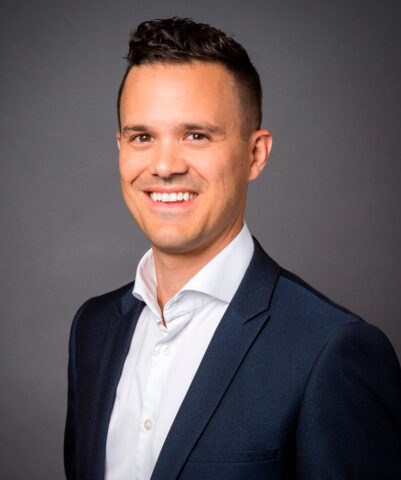“Every assessment presents a new challenge”

Real estate valuers are challenged every day: Analytical and structured thinking are in demand. Immo!nvest spoke with two experienced professionals and shows which talents and characteristics are advantageous for this profession and how to become a good appraiser.
The job of a real estate valuer is multifaceted: on the one hand, these professionals value real estate, on the other hand, they analyse the direction in which a property is developing from an economic and ecological point of view. In their valuations, professionals not only rely on national and international standards, they also take into account factors such as land register entries, tenancy and condominium ownership, contaminated sites or agreements under private law. They also check the quality of the construction and the materials used. Property valuers must be well-versed in environmental and building law and have a sound knowledge of the ZGB/OR. In addition, a real estate valuer is able to advise his clients on optimising use and profitability.
Hugo Odermatt, Head of Valuation, ARLEWO AG:
“I don’t know boredom”

Personal details
Hugo Odermatt holds a Master’s degree in Real Estate Management from the University of Applied Sciences St. Gallen. He also completed the CAS Sustainable Building, Architecture, Construction and Geomatics at the University of Applied Sciences Northwestern Switzerland. Since 2014, he has been Head of Valuation at Arlewo AG and, since 2021, President of the Building Commission of SBL Wohnbaugenossenschaft Luzern. Odermatt is also an SVIT valuation expert and a member of the SVIT Chamber of Valuation Experts and the Swiss Real Estate Valuers Association (SIV).
How would you describe your day-to-day work in no more than five sentences?
Basically, I can say that no two days are the same. There are hectic days, packed with meetings, inspections, telephone calls and lively exchanges with the team. But there are also the quieter days with time for clarifications, processing, studying files and preparing reports. Every day is challenging and exciting. I don’t know boredom.
What basic training is suitable for a later job as a real estate valuer?
I don’t believe that a special basic training is necessary for a job as a real estate valuer. Of course, it helps if there is knowledge in the real estate sector. When I started working in the industry, my boss prepared valuations that went through my desk. That’s when I realised I wanted to appraise too. A good basic education helps. But in my opinion, a good portion of curiosity, joy, the will to persevere at the beginning and the ability to think in a networked way are more important.
There are different training offers. Which training course do you recommend to future professionals?
In recent years, numerous providers have established themselves that offer training and further education in the field of real estate valuation at a top level. I recommend comparing these offers, attending information events and, if possible, exchanging information with graduates of the respective schools. Of course, personal circumstances also play a role in choosing a provider. What knowledge and skills do I already have? What do I want to do afterwards? Often a CAS or a professional certificate in real estate valuation is only a stopover on a personal career path.
What talents and characteristics are important?
Holistic, analytical and structured thinking and working is essential when preparing real estate valuations. Numerous factors have an impact on the value of a property. It is important to recognise all these influencing factors (holistically), to describe the influence on the value of a property clearly and comprehensibly (analytically) and, if necessary, to derive them mathematically. In order not to lose the overview, a structured approach is helpful.
What do you particularly appreciate about your profession?
In the foreground is the fact that every valuation is a new challenge. No two are the same. An evaluator is constantly challenged anew. Besides this challenge, I also like the contact with the clients. I notice that the amount of customer care and advice has increased. You could say that the customer has become more demanding.
Where do you see the biggest challenges?
Just a few years ago, data was rather scarce. Today, it’s less about quantity and more about quality. Data alone does not constitute significant information. An essential part of valuation is to estimate the value or quality of data, to put it into context and to describe it in a report in a comprehensible way.
Are property valuers more in demand in larger companies or is this profession also suitable for self-employment?
I know valuers who have been running a sole proprietorship very successfully for decades. Both self-employment and working in larger teams offer many advantages and disadvantages. I think this is also a question of type.
How does one become a good real estate appraiser?
In my opinion, he has the ability to constantly develop himself. He constantly gathers new experience and exchanges ideas with professional colleagues. This exchange, combined with regular further training, curiosity and enjoyment of the profession, makes a good valuer.
What advice do you have for young people starting out in the profession in order to successfully gain a foothold?
I notice that young people starting out in the profession know exactly what they want. What they lack, however, is experience. That’s why I recommend that young professionals take enough time to evaluate. I don’t mean the time for a single valuation, but to work on one’s own skills for one or two years.
What milestones and highlights have you achieved and experienced in your professional life so far?
My Master’s degree in real estate valuation and the ISO certification are two milestones of my work so far. Every single valuation fills me with pride and joy. Because I think every client can expect the best possible service from us, regardless of whether it’s a single-family home, a large portfolio or a prestigious development site.
Silvan Mohler, Head of Real Estate Valuation, Thurgauer Kantonalbank (TKB):
“I am a value junkie”

Personal details
Silvan Mohler is a business economist FH and holds a Master’s degree in Real Estate Management, Real Estate Valuation, Real Estate Development and Real Estate Management from the University of Applied Sciences St. Gallen. He then graduated as a real estate manager with a federal certificate. He has been Head of Real Estate Valuations at the Thurgau Cantonal Bank since 2014 and President of the Swiss Real Estate Valuers Association SIV since 2020. He has also been on the Board of Directors of the Swiss Institute of Real Estate Appraisal (SIREA) since 2020 and is a board member of REIDA (Real Estate Investment Data Association).
How would you describe your day-to-day work in no more than five sentences?
I am head of real estate appraisal at Thurgauer Kantonalbank. Together with my staff, I look after our external accredited valuers and answer technical questions. I also value real estate myself and am involved in various internal bank projects. We prepare more than 2,500 valuations a year, both in the financing business and on behalf of classic clients.
What basic training is suitable for a later job as a real estate valuer?
I meet professional colleagues with the most diverse basic training: These range from the field of architecture to structural draughtsmen who have continued their education and have a very good flair for real estate and numbers, to technical professions related to the real estate industry. A commercial apprenticeship with additional economic training also offers good entry opportunities. Especially if it is combined with specific further training in the real estate sector.
There are various training courses in the field of real estate valuation. Which course do you recommend to future professionals?
As a member of the board of directors of the Swiss Institute of Real Estate Appraisal (SIREA), I recommend a CAS Real Estate Appraisal at a university of applied sciences. It includes a lot of compact and practical user knowledge. This can be built upon flexibly – for example, by means of a CAS Real Estate Development or Real Estate Management with a focus on real estate appraisal, which can ultimately lead to a MAS REM. But graduates are also very well equipped with training at another institute to become a real estate appraiser with a federal certificate.
What talents and characteristics are important?
In addition to a flair for real estate, the ability to deal with numbers and interpret them correctly is of great importance. You also have to be able to quickly familiarise yourself with local real estate markets and understand them. A good feel for property values is essential. The necessary intuition for the most diverse valuation situations – such as family matters – is something you develop over time. Today it is also important to be able to use the most common valuation tools or at least to quickly understand how these tools work.
What do you particularly appreciate about your job?
The variety that every property brings with it: every project or property is unique. But I also enjoy the daily interaction with the bank client advisors or our specialists from Credit Risk Management as well as the clients. In summary, I like the combination of the numerical work and the contact with very many different people, from tenants to owners or investors. I am a “value junkie” and interested in getting the best out of things.
Where do you see the biggest challenges?
The markets are constantly changing – you have to be able to assess them correctly. One should be open to new tools and methods, and if speed is required when processing valuations, the necessary quality must be maintained.
How does one become a good real estate valuer?
By learning to understand the different demands of a real estate transaction and the perspective of the different players. It is important to constantly observe the market. Arguments from the client or other stakeholders should not be categorically rejected, but should be examined. I recommend to make as many assessments as possible and also to venture into difficult cases – if necessary with support. And, of course, it is important to keep learning.
What advice do you give to young professionals in order to successfully gain a foothold in the profession?
Starting out in a team makes it easier: exchanging ideas and talking shop with others sharpens one’s own perception. Newcomers to the profession should have the bite to deal with complicated cases and valuations.
What milestones and highlights have you achieved and experienced in your professional life so far?
My early self-employment as a real estate valuer was definitely a milestone and a school for life for me. But I also count leading the real estate appraisal team at TKB and continuously realigning it over the last few years as one of my professional highlights. In addition, I have been President of the Swiss Real Estate Valuers Association SIV with around 750 members since 2020. This task is very close to my heart.